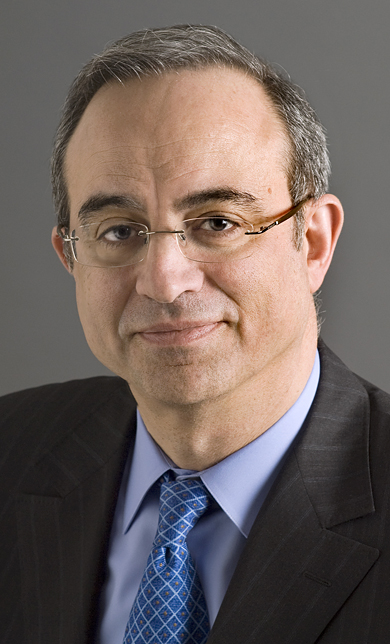Ambassador to speak at Purdue about democracy, Arab world
WEST LAFAYETTE, Ind. — A former ambassador to Jordan who is an expert in the areas of diplomacy and communication in the Middle East, will speak at Purdue University about changes the Arab world has experienced as a result of the 2010-11 uprisings.
Ambassador Marwan Muasher, who also is a Purdue alumnus, will present "The Arab Awakening: One Year On" at 7:30 p.m. Feb. 20 in Stewart Center's Fowler Hall. The event, which is free and open to the public, is part of the Global Connections Lecture Series organized by Purdue's Global Policy Research Institute.
"It has only been a year since the uprisings in the Arab world triggered leadership and policy changes, and we are pleased that Ambassador Muasher will be here to speak about the topic, especially what it means for democracy in the Arab world today, which countries have the best chance of success so far, and which ones are struggling and why," said Arden L. Bement Jr., director of the Global Policy Research Institute. "He was the first Jordanian ambassador to Israel in 1994, and brings an interesting perspective regarding how the recent Arab protests and uprisings have affected the Arab-Israeli conflict and how the West should deal with these movements while building international relationships."
Muasher, who wrote "The Arab Center: The Promise of Moderation," is vice president for studies at the Carnegie Endowment, where he oversees the endowment's research in Washington and Beirut on the Middle East. He served as foreign minister of Jordan from 2002-04, where he played a central role in developing the Arab Peace Initiative and Middle East Road Map. In 2004 he became deputy prime minster responsible for reform and government performance. He led the effort to produce a 10-year plan for political, economic and social reform. From 2006-07, he was member of the Jordanian Senate.
He began his career as a journalist for the "Jordan Times," and he then served at the Ministry of Planning, at the prime minister's office as press adviser and as director of the Jordan Information Bureau in Washington, D.C. In 1995 Muasher opened Jordan's first embassy in Israel, and in 1996 became minister of information and the government spokesperson. From 1997 to 2002, he was in Washington, D.C. again as ambassador, negotiating the first free trade agreement between the United States and an Arab nation.
From 2007-10 he was senior vice president of external affairs at the World Bank. He earned a bachelor's degree from the American University of Beirut in 1975, and bachelor's and doctoral degrees in electrical engineering from Purdue in 1977 and 1981, respectively. He received an honorary doctorate in 1999.
He also is a member of the External Advisory Council for the Purdue Global Policy Research Institute. The institute, part of the university's "New Synergies" strategic plan, focuses on the university's strengths in science, information technology, data management and systems engineering in collaboration with economics and the social sciences to inform policymakers about critical issues such as society and leadership, food security and health. The institute has awarded more than $400,000 in grants to help Purdue professors establish interdisciplinary teams addressing complex issues locally, nationally or globally, while positioning them to be more competitive in acquiring external funding to sustain their policy-related research. Some of the supported topics include food security, disaster recovery, cancer prevention, diabetes treatment and sustainability and their policy implications.
Writer: Amy Patterson Neubert, 765-494-9723, apatterson@purdue.edu
Sources: Arden L. Bement Jr., 765-496-6713, bement@purdue.edu
Angela Phillips Diaz, managing director of the Global Policy Research Institute, 765-496-6765, apdiaz@purdue.edu

